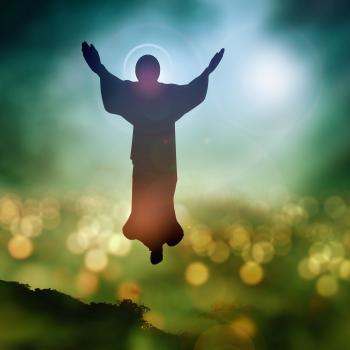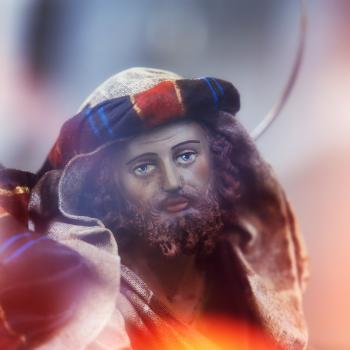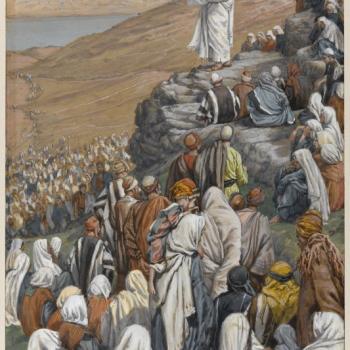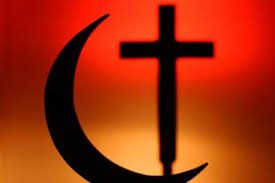 Benjamin Corey and I have agreed to ask each other questions related to our respective faiths, and specifically the common views on Islam, Christmas, Jesus and Mary. We hope this will help promote cross channel understanding, and promote Christian-Muslim dialogue. Ben is the managing editor, and a blogger on the Progressive Christian Patheos channel. You can read his blog on Patheos here.
Benjamin Corey and I have agreed to ask each other questions related to our respective faiths, and specifically the common views on Islam, Christmas, Jesus and Mary. We hope this will help promote cross channel understanding, and promote Christian-Muslim dialogue. Ben is the managing editor, and a blogger on the Progressive Christian Patheos channel. You can read his blog on Patheos here.
Ben went first and asked me 4 questions. Here are his questions and my responses.
Ben: During my time studying Islam in seminary, I was quite surprised to discover that Christians and Muslims have more theological beliefs in common than any other two religions I can think of, including Christianity and Judaism. Why do you think the general public is so unaware of our theological commonalities?
Ejaz: You are right, Ben. There are more commonalities between Islam and Christianity than most of us realize. Christians and Muslims are members of the Abrahamic family of monotheism, believing in One God, prophets, angels and an afterlife. We believe in God being the creator, the Almighty, the Merciful and the most Kind, and we have a similar code of conduct that calls for social justice, kindness and helping the needy and the oppressed. We have similar versions of the golden rule. ( My post on the golden rule was published within the past week.)
The million-dollar question you raised as to why the general public does not realize the commonalities is what prompted me to get involved in interfaith work and write the two books to do just that- raise awareness of how similar the teachings of the Bible and the Qur’an are, though I realize significant differences do exist.
The causes for this lack of awareness are multifactorial. To start off, the “general public” is at the mercy of the commercial media, where politics and ratings rule supreme. Quite frankly, highlighting the similarities are boring and do not generate good ratings. They are not sensational. Many of our interfaith local and regional gatherings to show solidarity go un-noticed by media. We had ring of solidarity around mosques and synagogues, for example, and we did not hit their radar despite our attempts to get their attention. (In some cases we did get some, but that was like a drop in the bucket).
But I am not going to blame it all on the media or call them fake news.
Politics plays a huge role. Unfortunately religion, by both sides, has been used to incite fear and hate, creating insecurities for political gains. Unfortunately, the politics of division and fear-mongering does work, and they know it and until the public reacts differently (by not electing them for example), their tactics will likely not change.
I would also put it on the shoulders of the religious leaders- Imams and ministers and religious workers. I don’t think they have done enough from the pulpit to get people to get closer to each other. They have probably done the opposite in most cases. This needs to change.
I believe the majority of ordinary Muslims and Christians want to get to know about each other and learn from each other. It’s just that the silent majority has to speak up and do more to get engaged in the process. This is what prompted me to write The Quran: With or Against the Bible?, The Three Abrahamic Testaments, and start blogging at Patheos, and in fact why I outreached to you, Ben- to start a dialogue between a Muslim and a Progressive Christian blogger!
Ben: Do Muslims recognize or celebrate Christmas? What are the significant holy days during this season that are unique to Islam?
Ejaz: The answer to the first part of the question is ‘yes and no’. Muslims believe in the holiness of the birth of Jesus Christ, but also feel Christmas is not an accurate date to celebrate his birth, but are not sure of the exact date either. Secular Muslims in the west would often celebrate Christmas like the secular Christians – by shopping till they drop and some by putting up the holiday lights and even a Christmas tree. But they do not go to the mosques for services-there are none.
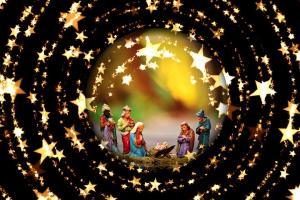 I ran this same question on several facebook platforms in the past week, asking Muslims if they “celebrate” Christmas. Most said they do not celebrate Christmas but they believe in the holy birth of Jesus. Others pointed out that the celebration is no longer “holy” and that it has been commercialized. Still others reasoned that celebration of a birth is not Islamic- a minority Muslim view, which they also apply to the birth of Prophet Muhammad.
I ran this same question on several facebook platforms in the past week, asking Muslims if they “celebrate” Christmas. Most said they do not celebrate Christmas but they believe in the holy birth of Jesus. Others pointed out that the celebration is no longer “holy” and that it has been commercialized. Still others reasoned that celebration of a birth is not Islamic- a minority Muslim view, which they also apply to the birth of Prophet Muhammad.
Muslim holy days may or may not fall in December since Islamic calendar is lunar, consisting of 354 days, so each year we get about 11 days behind the Gregorian calendar. Earlier this month we did celebrate Mawlid- the birth of Prophet Muhammad. But it just happens to fall in December this year. Next year, it will be about 11 days behind. The occasion is celebrated by singing praises of Prophet Muhammad, narrating his sayings and his deeds that we should follow and paying our tributes and salutations to him, thanking him for his immense sacrifices and for his teachings to get us closer to God.
The other major festivals are the two Eids– Eid ul Fitr, to thank God for giving us the blessed month of Ramadan, and Eid ul Adha, at the completion of Hajj, which in turn is mostly to honor and commemorate the sacrifices of Abraham, Ishmael and Hagar.
Next: Mary’s status in Islam. Caution: the Youtube videos may be offensive to many.



